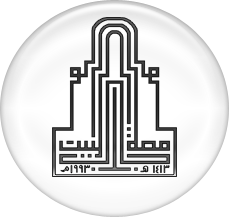| DC Field | Value | Language |
|---|
| dc.contributor.author | أفنان رحال | - |
| dc.contributor.author | جهاد نصيرات | - |
| dc.date.accessioned | 2020-12-07T12:02:53Z | - |
| dc.date.available | 2020-12-07T12:02:53Z | - |
| dc.date.issued | 2019-11-20 | - |
| dc.identifier.uri | http://hdl.handle.net/123456789/2056 | - |
| dc.description.abstract | ملخص
تهتم هذه الدراسة بمادة (ورد) في القرآن الكريم، من خلال دراستها دراسة دلالية سياقية، تتناول اللفظة وتقاليبها ومعناها المعجميّ والاصطلاحي مع ملاحظة تطورها الدلالي، ودراستها كذلك في السياقات القرآنية المختلفة، كما تتناول دراسة الكلمات المقاربة لها، والهدف من هذا الكشف عن جانبٍ من جوانب الإعجاز وهو الإعجاز البيانيّ، وقد كشفت الدراسة عن اختصاص كل لفظة بسياقها الذي جاءت فيه بحيث لا يقوم مكانها غيرها.
الكلمات الدالة: ورد، دراسة دلالية.
The verb “Warad” in the Noble Qur’an an indicative
contextual study
Abstract
This study is concerned with the item of (warad) in the Holy Quran; through studying it in a contextual study, it also deals with the word and its meanings in lexicon and terminology, then noting how its development of semantic, in addition it study the item in different contexts of the Quran. Furthermore, it is study the words approaching it, All this to clarify one aspect of linguistic miracles in the Holy Quran.
This study revealed that no word could be replace by another word in the contexts of the Quran, because each word has its own meaning in its context. | en_US |
| dc.subject | الكلمات الدالة: ورد، دراسة دلالية. | en_US |
| dc.title | مادة (ورد) في القرآن الكريم: دراسة دلالية سياقية | en_US |
| dc.type | Other | en_US |
| Appears in Collections: | المجلد 16، عدد 4 لسنة 2020
|

